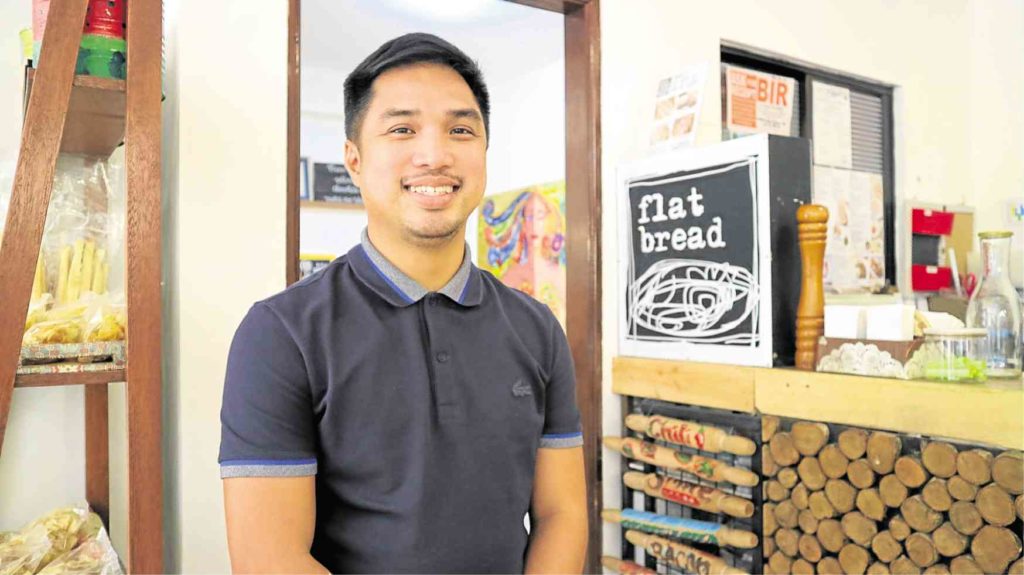Going digital helps small fry compete with the big fish
On a quiet residential street of Marikina City stands Flat Bread, a restaurant-cafe where its most frequent diners are, unsurprisingly, its friendly neighbors.
It identifies itself as a community restaurant, one that develops with and in its own locality.
Its menu extends organically by listening to customers’ suggestions, and it admits the best ideas come from spontaneous dining comments.
As a community restaurant, Flat Bread finds ways to be further integrated into its own community, being present at city-wide events, hosting the small celebrations of its regular customers, and taking part in local food festivals.
But Flat Bread hasn’t always been the quaint food nook that it is now.
Far from its current setup, the merienda cum comfort food concept was first introduced in food parks, namely The Yard and Crave Park in 2016.
It was serving about 35,000 flatbreads a night during the boom of the food park trend, but decided to pull out a few months later.
“Flatbread is easy to make, easy to serve. You can practically put anything on top of it. It was perfect for food parks because it didn’t take long to prepare—bread was made fresh every day, then you just top it with cheese and meat, reheat it, and you’re done,” co-owner Mark Catarroja shared.
“But then food parks just kept popping right beside each other. We can say it was a good launchpad, but you don’t expect to stay there for a year, or even celebrate being in one for an entire year-you have to grow as a business,” he added.
Besides having a wide range of flatbreads, it is now able to serve more types of dishes under the comfort food category-pasta, rice meals, desserts and refreshments.
The people behind Flat Bread like to believe the resto-cafe has become their neighborhood’s “happy place.”
But Flat Bread is so much more than that.
“This was built for a purpose, Flat Bread is really dedicated for our students who do not have P5 million to invest. It’s our way of showing them a different concept, introducing a very familiar and comfortable place,” shared Catarroja, who is also a school administrator of Professional Academy for Culinary Education or Pace.
Catarroja revealed that their small-ratio culinary school does not only focus on developing cooking skills and techniques, it has entrepreneurship embedded right in its curriculum.
“Culinary training can be pretty straightforward-train students for the restaurant and food service industry. But in doing so, you’re displacing a lot of people who are capable of putting up businesses,” he said.
“At Pace, we coin it ‘Culinary Entrepreneurship.’ We already have a good 60 percent of students who really pursue business. But as teachers, we know the importance of walking the talk—everything we put up must be something that they can see as a model. Flat Bread is only one of them,” he added.
“We like experimenting with new ways on how to do business. We actually have two Pace alumni who are our partners at Flat Bread, and we are six in total. It’s purposely with our alumni to show teacher-student business collaboration. It’s not impossible that one day we would just let them take over,” Catarroja said.
Giving small-time food industry players like Flat Bread a chance to compete in the big leagues are the great equalizers of today—technology and data connectivity.
Online visibility and engagement are now considered fundamental elements for brand recognition.
“Prime location is not everything. But if you can’t find us online, and if Waze can’t navigate you here, then that’s a big problem for us. We have to make sure Flat Bread comes out when you type it on search,” he said.
“We use the Facebook boosts and we get a lot of bookings and inquiries through the Facebook app. Everything is sent to our potential customers through Messenger, from samples of food and arrangements, price lists, quotations, contracts,” the co-owner shared.
Now that the “word of mouth” uses a different platform, or different social media sites to be more accurate, entrepreneurs and their businesses are obligated to stay connected and updated 24/7. Catarroja and his partners are subscribed to the communication services of Smart, which has doubled its LTE capacity in Marikina, making it easier to manage a restaurant business.
Having a consistent online presence is more of a necessity than a mere option, even for traditional businesses.
Catarroja shared that they plan to maximize digital marketing, partnering with different booking and food applications, introducing paperless vouchers, and effectively launching promos and products online—possibilities they won’t know of if the owners didn’t see it on their mobile phones themselves.
But Flat Bread does not only rely on fast internet speed to post on social media and respond to online questions. It’s actually integral to their business’ internal communication and management.
“Connectivity is everything in the food industry,” Catarroja emphasized. “And whether you’re a big or small business, technology and data connectivity have become the industry’s great equalizers.” —CONTRIBUTED















